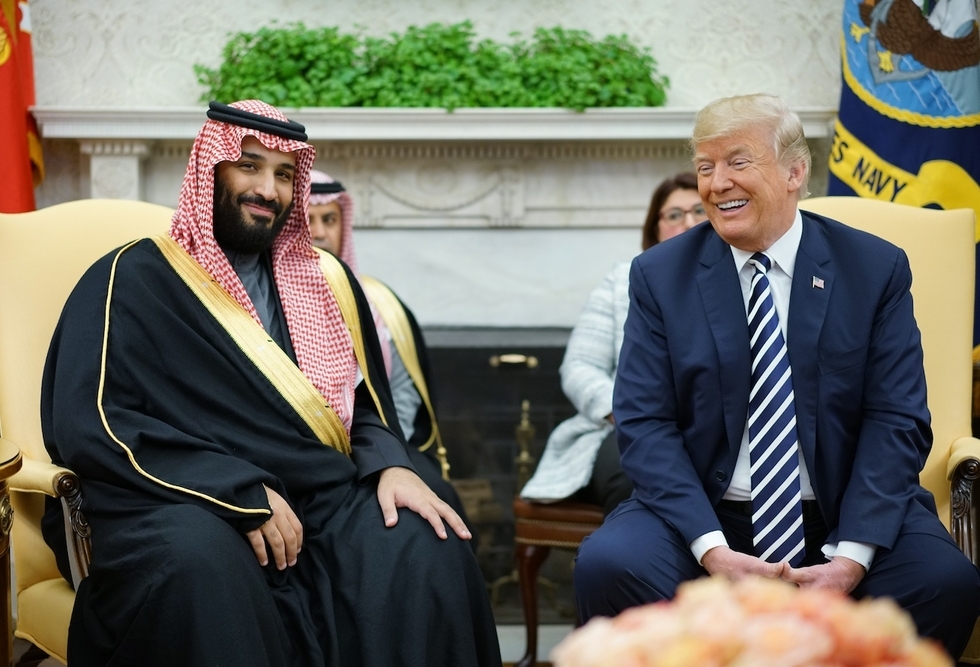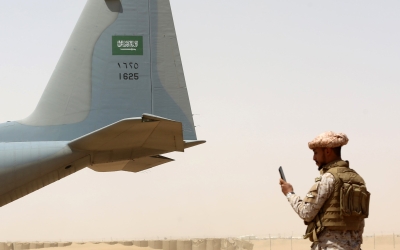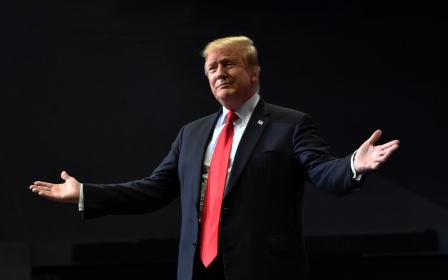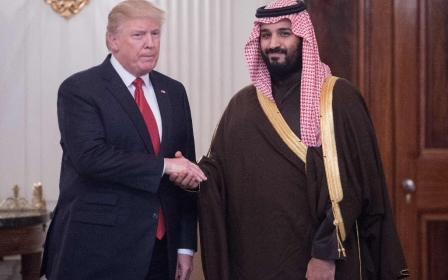US senators introduce motions to block Trump's arms sales to Saudi Arabia

In a rebuke of Donald Trump, key US senators from both major parties introduced 22 separate resolutions in an attempt to block arms sales to Saudi Arabia and the United Arab Emirates.
The resolutions, unveiled on Wednesday, aim to stop every single weapons purchase approved by the Trump administration late last month without congressional oversight.
US Secretary of State Mike Pompeo declared an emergency on 24 May to force the deals through, bypassing Congress to approve $8bn in weapon purchases to the governments in Riyadh and Abu Dhabi.
Pompeo cited tensions with Iran at the time to strip Congress of its authority to halt the sales.
On Wednesday, Senator Bob Menendez, the top Democrat on the Senate Foreign Relations Committee, threatened to use all possible options to "nullify the licenses at issue" for both Saudi Arabia and the UAE.
"The Trump Administration’s effort to sell billions of US weapons to Saudi Arabia and the United Arab Emirates is yet another example of an end-run around Congress and a disregard for human rights," he said in a statement.
Menendez is one of several senators co-sponsoring the effort to stop the weapons sales. Other co-sponsors include Lindsey Graham, a senior Republican lawmaker and Trump ally, and Senator Rand Paul, a libertarian Republican who often agrees with the president on domestic issues.
In his statement, Menendez also accused Pompeo of abusing the law, urging him to withdraw the emergency declaration.
Under normal circumstances, after the State Department approves arms sales to a foreign nation, Congress has 30 days to block the deals.
But the law allows the president to go around Congress if there is a national security emergency.
The purchases that were forced through thanks to the recent emergency declaration had been held up by Menendez, who was seeking clarifications about the US role in the war in Yemen.
The push to halt the sales is the latest effort by Congress to express its disapproval of Trump's policies towards Saudi Arabia, a country that the US president continues to view as an important American ally in the region.
Since the murder of journalist Jamal Khashoggi at the hands of Saudi government agents last year, Congress has passed a series of measures to denounce Crown Prince Mohammed bin Salman in defiance of Trump.
'While I understand that Saudi Arabia is a strategic ally, the behaviour of Mohammed bin Salman cannot be ignored'
- Republican Senator Lindsey Graham
Congress also passed a resolution that aimed to end Washington's support for Saudi-led coalition forces in Yemen, but Trump vetoed that measure.
"While I understand that Saudi Arabia is a strategic ally, the behaviour of Mohammed bin Salman cannot be ignored," Graham said in a statement on Wednesday.
"Now is not the time to do business as usual with Saudi Arabia."
On Wednesday, Physicians for Human Rights (PHR), a US-based advocacy group that documented 23 attacks on health facilities in Yemen over the past 16 months, also urged Washington to stop the transfer of arms Saudi Arabia and the UAE.
"The administration’s decision to defy Congress and circumvent its oversight authority under the Arms Export Control Act sets a dangerous precedent that will only add to the horrific toll of death and suffering inflicted on the Yemeni population," Phelim Kine, PHR’s director of research, said in a statement.
The congressional resolutions to block the weapons sales will need to pass both the Senate and House of Representatives.
Trump is likely to veto them, but lawmakers can overturn the presidential objection with a two-third majority in the House and the Senate.
Middle East Eye propose une couverture et une analyse indépendantes et incomparables du Moyen-Orient, de l’Afrique du Nord et d’autres régions du monde. Pour en savoir plus sur la reprise de ce contenu et les frais qui s’appliquent, veuillez remplir ce formulaire [en anglais]. Pour en savoir plus sur MEE, cliquez ici [en anglais].





